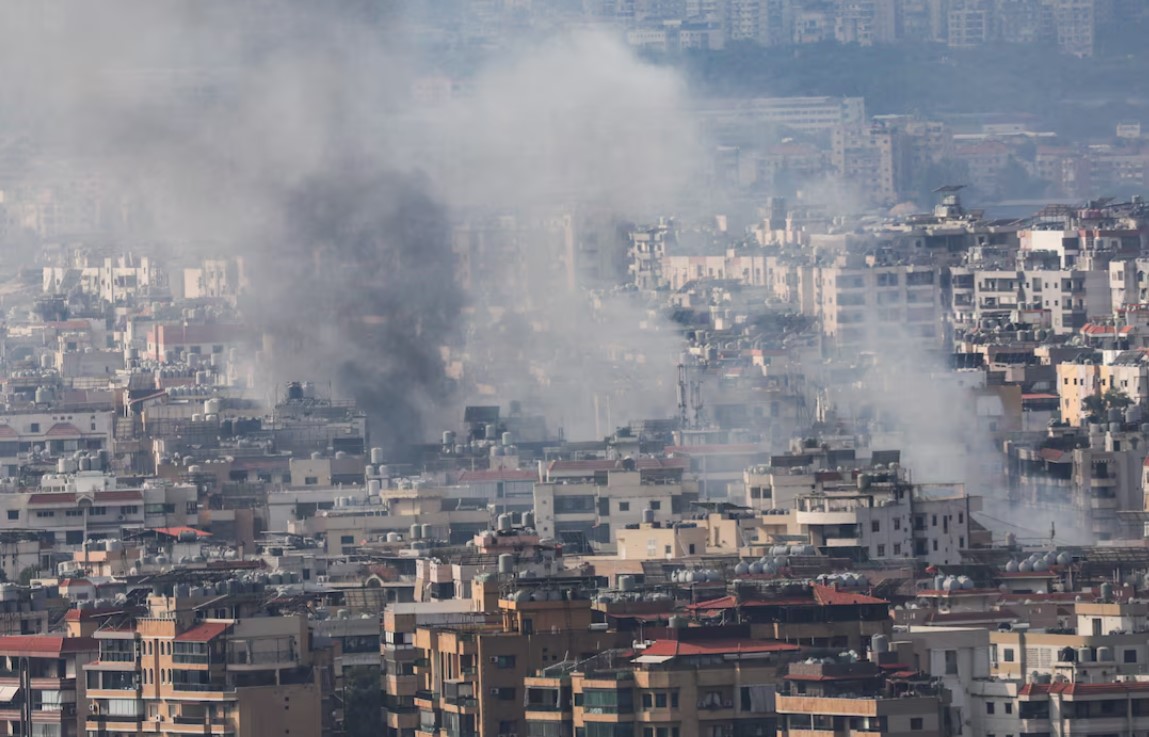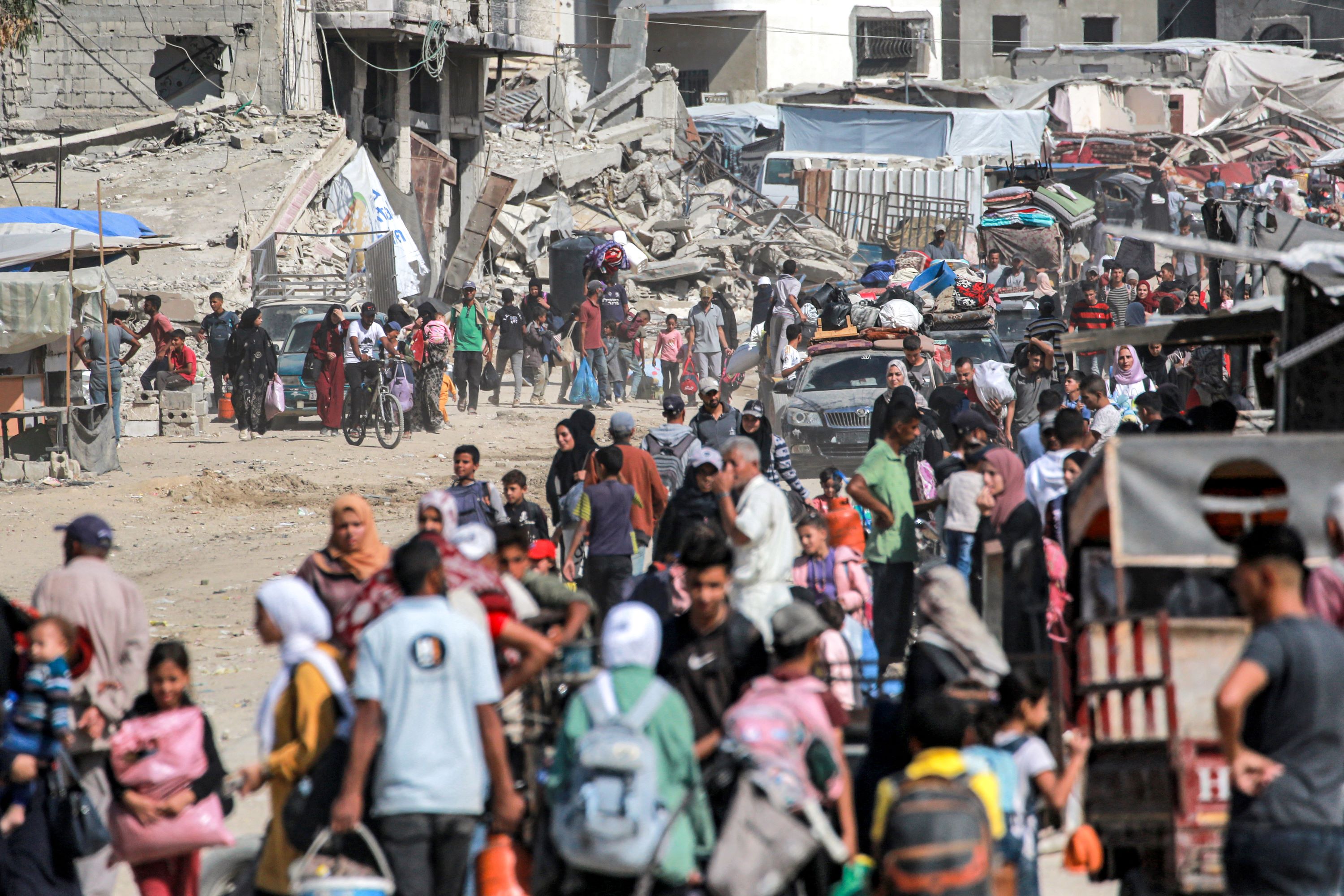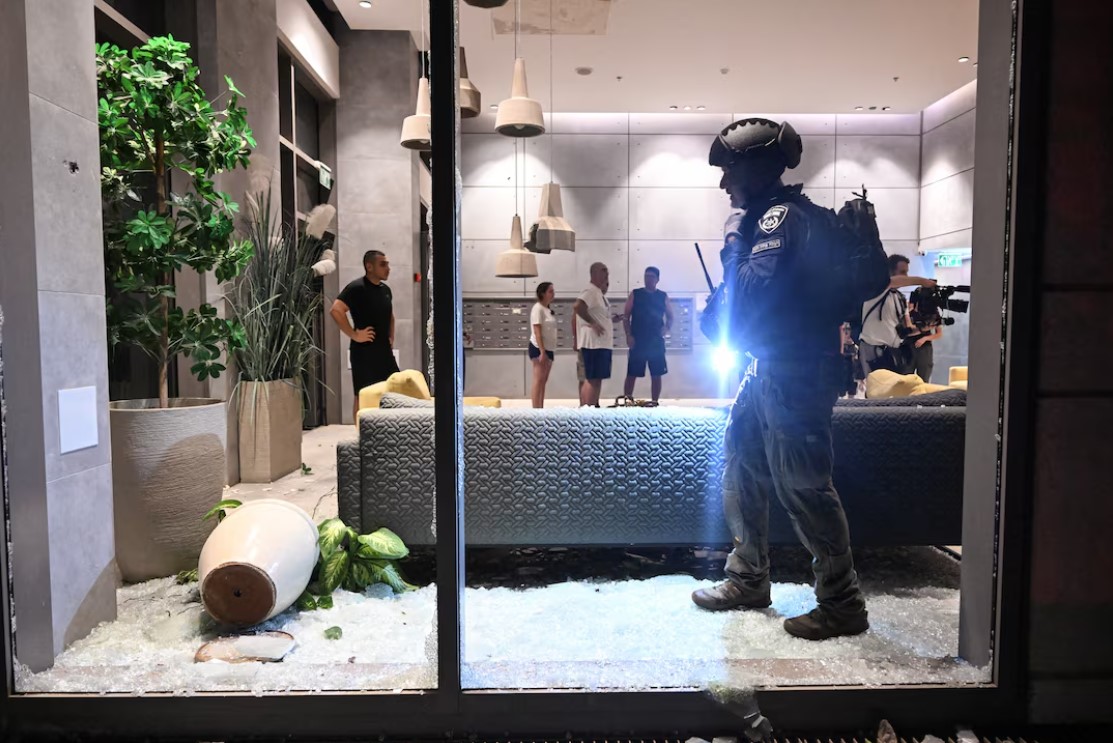
BEIRUT/GAZA/JERUSALEM – Israel's military said on Tuesday it had begun ground operations in southwest Lebanon, expanding its incursions to a new zone a year after exchanges of fire began with Hezbollah and amid pleas by the UN for a diplomatic solution.
The regional tensions triggered a year ago by Hamas's attack on southern Israel have spiraled to a string of Israeli operations by land and air over Lebanon and direct attacks by Iran onto Israeli military installations.
Iran warned Israel on Tuesday against any attacks on the Islamic Republic, a week after Tehran fired a barrage of missiles on it, putting the Middle East on edge.
Any attack on Iran's infrastructure will be met with retaliation, Foreign Minister Abbas Araqchi said, warning Israel against attacks on his country.
READ MORE: Hamas marks one-year of Oct 7 attack, vows readiness for long-term conflict
Araqchi will visit Saudi Arabia and other countries in the Middle East starting on Tuesday to discuss regional issues and work on stopping Israel's "crimes" in Gaza and Lebanon, Iran's ISNA news agency reported.
Hamas, which has seen the Palestinian territory of Gaza laid waste by Israel's war, vowed to rise "like a phoenix" from the ashes despite heavy losses from a year of fighting.
The UN agency for Palestine refugees said Monday that the year-long "brutal" war has turned the Gaza Strip into a graveyard for tens of thousands and a sea of rubble.
"Twelve months of brutal war have transformed the Gaza Strip into an unrecognizable sea of rubble and a graveyard for tens of thousands of people, among them far too many children," Philippe Lazzarini, commissioner-general of the United Nations Relief and Works Agency for Palestine Refugees in the Near East (UNRWA), said on social media platform X on the first anniversary of the Gaza conflict.
Stressing that the Middle East is "sinking deeper into conflict, killing, and sheer horrors”, he said: “The expansion of the war into Lebanon is wreaking havoc on civilians, many forced to relive traumas of the past.”
Hezbollah said it targeted a military base south of Haifa with "Fadi 1" missiles and launched another strike on Tiberias, 65 km away.
They also targeted areas north of Haifa with missiles. Israel's military said around 190 projectiles had entered Israeli territory on Monday. There were at least 12 injuries.
READ MORE: Macron talks with Netanyahu amid tensions over arms embargo
Gulf states have sought to reassure Iran of their neutrality in the Iran-Israel conflict, sources told Reuters last week.
In Lebanon, the Israeli military piled more pressure on Lebanon's Iran-backed Hezbollah, saying it was conducting "limited, localized, targeted operations" in Lebanon's southwest after announcing such operations for the southeast border area.

Israel's military struck Beirut's southern suburbs overnight and said it killed a senior Hezbollah responsible for the group's budgeting and logistics.
If confirmed, the death of Suhail Hussein Husseini would be the latest in a string of Israel's assassinations of leaders and commanders of Hezbollah and its ally Hamas.
In the biggest blow to Hezbollah in decades, Israel killed its leader Hassan Nasrallah with an air strike in Beirut's southern suburbs late last month.
The United Nations Special Coordinator for Lebanon and the head of the UN's peacekeeping mission in the country said on Tuesday that their repeated appeals for restraint had "gone unheeded" in the year since the exchanges of fire began between Hezbollah and Israel.
ALSO READ: Iran backs ceasefire in Gaza, Lebanon, warns of stronger retaliation against Israel
"Today, one year later, the near-daily exchanges of fire have escalated into a relentless military campaign whose humanitarian impact is nothing short of catastrophic," they said in a joint statement.

Israeli operations steadily expand
Tension between Iran and Israel is running high after years of shadow war and assassinations have turned into direct confrontations that have put the region on edge.
Israel has been weighing options to respond to Tehran's ballistic missile attack last week, carried out in response to Israel's military action in Lebanon.
US news website Axios cited Israeli officials as saying Iran's oil facilities could be hit, which would be a serious escalation that could drive up global oil prices.
On Friday, President Joe Biden said he would think about alternatives to striking Iranian oilfields if he were in Israel's shoes, adding he thought it had not yet concluded how to respond to Iran.
ALSO READ: Biden signals opposition to possible Israeli strikes on Iran oil facilities
Israeli airstrikes have displaced 1.2 million people in Lebanon, and Israel's intensified bombing campaign has worried many Lebanese that their country will experience the vast scale of destruction wrought on Gaza by Israel.
Israeli forces issued a warning in Arabic to beachgoers and boat users to avoid a stretch of the Lebanese coast, saying they would soon begin operations against Hezbollah from the sea.
About 2,000 Lebanese have been killed since Hezbollah began firing at Israel a year ago in solidarity with Hamas, most killed in the past few weeks.
The Israeli military has described its ground operation in Lebanon as localized and limited, but it has steadily increased in scale beginning last week.
The Israeli Defense Forces says its aim is to clear border areas where Hezbollah fighters have been embedded, with no plans to go deep into Lebanon.


